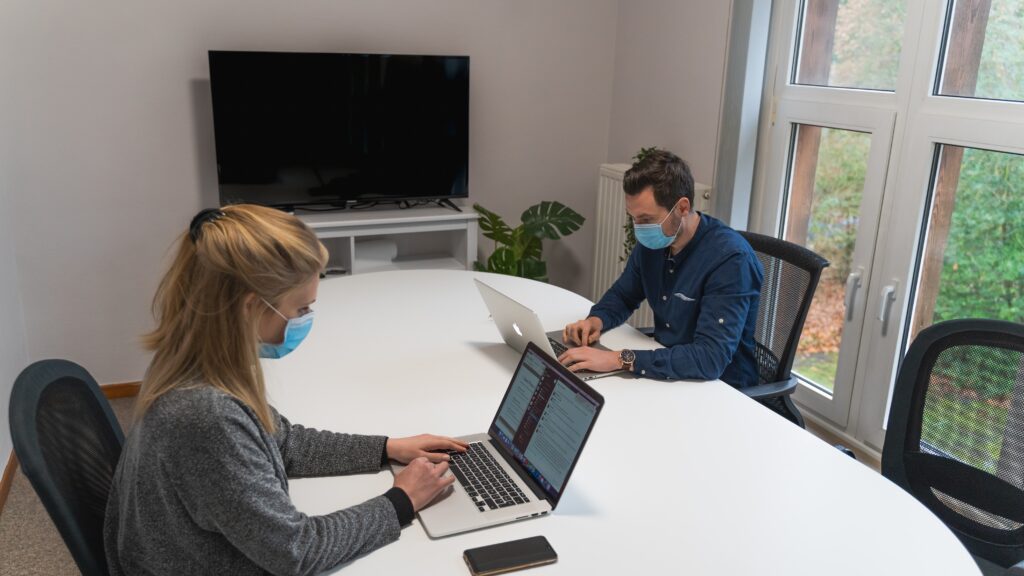How to Prevent Incivility – A Precursor to Workplace Violence
The nation is cautiously celebrating the beginning of the end. After more than a year of lockdowns, masking mandates, isolation, stress and loss, the cloud appears to be lifting.
As the federal, state and local governments relax public health mandates, employees find themselves invited (or summoned) back to the office. In anticipation of this transition, managers should be aware of how the last twelve months may have impacted their employees. Undoubtedly, they will discover that their employees, now thrust back together, are not the same people as those who left. Knowing this, managers should pay special attention to their employees’ potential resentment, their mental health, and any ‘denialism/conspiracy’ theories that create workplace incivility — a precursor to workplace violence.

Back to ‘Normal’
While many employees will have come through the pandemic relatively unscathed, others have been significantly impacted. They may have lost family members, become ill, or suffered through extended isolation. Some will be eager to return to the office, while others may prefer the at-home approach. A recent poll by the Best Practice Institute found that approximately 83 percent of CEOs want to bring employees back to physical offices full-time, while only 10 percent of workers want the same. Whatever your organization’s approach, be mindful of potential resentment or anger at changing company policies.
In addition, the emotional and mental toll of the pandemic cannot be overstated. During the pandemic, about four in 10 adults in the U.S. reported symptoms of anxiety or depressive disorder, up from 1 in 10 adults from the year prior.
These symptoms are likely to linger as employees transition. As a manager, it is important to keep a pulse on employee morale (not everyone will reach out for help) and be willing to provide additional resources without succumbing to micromanagement.
In an office environment, people talk. As a nation, we remain in a hyper-politicized environment where COVID-19 and related public health measures have become cultural flashpoints and political arguments. Some employees may vocalize common conspiracy theories doubting the existence or severity of COVID-19, while other employees may have been tragically impacted. Employers should establish clear boundaries and policies regarding political dialog in the workplace. Left unchecked, heated conversations could evolve into workplace incivility.
What is Workplace Incivility?
Workplace incivility is defined as “a low intensity deviant behavior with ambiguous intent to damage the target, in violation of workplace norms for mutual respect. Uncivil behaviors are characteristically rude and discourteous, displaying a lack of regard for others.”
An increasing body of research supports the premise that incivility in the workplace can be a precursor to workplace violence.
The fact is, the nexus between workplace violence and workplace incivility cannot be ignored, and we’ve only recently begun to measure its impact.
Christine Porath states in her book, Mastering Civility, that “research also shows that working in a group where incivility is present affects people’s mental health, even after accounting for general stress and the invicility an individual personally experienced.” Workplace incivility is a corrosive form of interpersonal communication that can be a destructive catalyst in the workplace.
Not only can incivility lead to violence, a toxic work environment is bad for business.
The Impact of Incivility in the Workplace
A survey conducted by the Anxiety and Depression Association of America reported the second highest cause of work-related stress is “interpersonal relationships” (53 percent) and the cost of this stress is substantial. In a nationwide poll of 800 managers and employees across 17 industries, Christine Porath and her colleague Christine Pearson learned these facts about workers who have been on the receiving end of incivility:
- 48 percent intentionally decreased their work effort
- 47 percent intentionally decreased their time spent at work
- 38 percent intentionally decreased the quality of their work
- 80 percent lost work time worrying about the incident
- 63 percent lost work time avoiding the offender
- 66 percent said their performance declined
- 78 percent said their commitment to the organization declined
- 12 percent said they had left their job because of the uncivil treatment
- 25 percent admitted to taking their frustration out on customers
Creating a positive work environment is a key to long term success. Not only is it an important method to prevent workplace violence, it is necessary for businesses to succeed long term. As your team returns to the office, keep a pulse on the transition, how people are feeling within and how the group is working as a team. A proactive approach now will benefit you and your business for the new chapter ahead.

